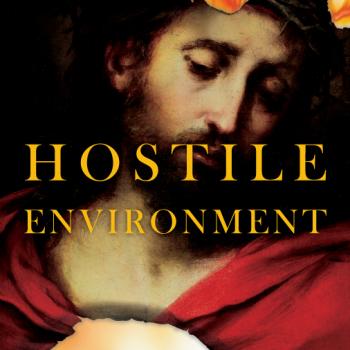I have spent a good deal of time criticizing conservative Christians about their support of President Trump and their role in helping him get elected. Even in the few months I have been writing Shattering Paradigms I have criticized the support of conservative Christians’ support of Trump again, again, and again. I believe it to be appropriate to be more critical of our own in-group than of others.
But that does not mean we should be silent about the shortcomings of others. If all we do is criticize our own, then it is fair to wonder if we are engaging in some level of self-hatred. To this end I have not hesitated in taking on Christianophobia and those who perpetrate it. It is in that vein that I decide to consider if progressive Christians also have played a role in the establishment of a Trump administration.
As a matter of fact, I have recently done research on progressive Christianity. That research has helped me to think about whether progressive Christians played a role in the rise of Trump. The answer I have come to is yes. Obviously not in the same way as conservative Christians who voted for Trump in overwhelming numbers. Clearly conservative Christians are more responsible for Trump than progressive Christians. But I am not willing to say that progressive Christians are blameless.
To set up my argument, I need to remind the reader of my post on how anger helped to create Trump’s victory. While there were those who voted for Trump simply because they were concerned about a possible Clinton presidency, many of the groups that supported Trump did so out of fear and anger. This is the case for many of the conservative Christians who voted for Trump. When I talked to many of them, I learned about the source of that anger and fear. It corresponds with much of my research on Christianophobia.
Christianophobia is defined as an unreasonable anger or fear of Christians. In the United States this type of bigotry is generally aimed at conservative Christians. My work on Christianophobia indicates that those who have this type of intolerance tend to be wealthy, highly educated, white, male, politically progressive and non-religious. This describes individuals with a high degree of cultural power. The way this type of hatred will manifest itself will be different than how hatred is manifested when expressed by those with less cultural power. There will be less threat of physical violence but more effort at occupational or cultural harassment.
For example, take the case of Eric Walsh. He is a doctor who had his job offer to work for the state government in Georgia rescinded due to sermons he preached on homosexuality. Since he has accepted the offer and has resigned from his former position, the move by the state of Georgia essentially left him unemployed. Fortunately he was able to sue Georgia who was forced to settle out of court.
This case reveals a certain level of hypocrisy among critics of conservative Christians. I have had many progressives tell me that Christianity belongs in the churches and in the homes. Many of my respondents stated this as well. I do not accept that argument as Christians should have the right to take their religion into the public square just as much as anyone else is free to take their ideas out into the public square. But the Walsh case shows that these progressives do not even support freedom of worship, much less freedom of religion. He was fired for something he said inside his church. Christians can rightly wonder how far some individuals will go to punish them.
Beyond incidents such as what happened to Walsh, my research on academic bias has found systematic evidence that conservative Protestants face unfair prejudice in academia. I have discussed other evidence showing that the dearth of conservative Protestants in academia is created, at least partially, by religious bias. Who are we likely to find in academia? Academics are more likely to be white, wealthier than average, male, highly educated, non-religious and politically progressive. In other words they fit the profile for those with Christianophobia, and it is reasonable to suspect that bigotry against conservative Christians is part of what has created an unfair academic bias against them.
Conservative Christians who complain about unfair treatment often have a point. Not all of their complaints are valid. I hate when conservative Christians argue that they are facing persecution. But they do face discrimination from some of the culturally powerful members in our society. I have heard many progressive Christians dismiss any attempt of conservative Christians to complain about unfair treatment. I have heard some even argue that conservative Christians deserve any bad treatment they may receive. If conservative Christians cannot express their frustration to progressive Christians, who are supposed to share a similar faith, for some of the actions taken against them, then they will look to someone else. Unfortunately right now they are looking towards Trump.
I cannot help but wonder if Trump would have won if conservative Christians felt that they had alternative paths for dealing with Christianophobia. If they felt that they had allies who would move the Democratic Party away from some of the worst excesses of religious bigotry among some of the members of that party. Their desperation to stop Clinton would not have been so extreme and enough of them may have abstained from voting for Trump to prevent his presidency.
What I am asking is not unreasonable. For example, I challenge my conservative Christian friends to consider the racial implications of the actions and words of Trump in particular and the Republican Party in general. Because I have addressed their concerns about Christianophobia, I have standing with many of them. I believe that my challenge has made a difference with some of them. Likewise, if Clinton had won, it would be fair for conservative Christians to ask progressive Christians to challenge some of the Christianophobia within the Democratic Party. But I fear, based on previous events and my research, that such a request would have fallen on deaf ears. I suspect that while there are a few progressive Christians who would have been concerned about cases like Walsh’s, the vast majority of them would have been more than happy to ignore the complaints of conservative Christians during a Clinton administration.
There is a chasm between modern conservative and progressive Christians on many issues. But there should be concerns they can agree upon such as combatting racism and anti-Christian bigotry. There is a possibility of an alliance on those issues but only if each side takes the other side’s concerns seriously. Such an alliance could make it much harder for a presidential candidate to race-bait or to malign conservative Christians. Drawing each party back from extremist ideology is a noble goal, but neither conservative nor progressive Christians have taken the concerns of the other side seriously. The unique presidency of Donald Trump could have emerged from this failure to consider the concerns of others.
Once again, this takes nothing away from the culpability of conservative Christians who put Trump into office. Before his election I argued with many of them that it was better to have a Clinton who thought them “deplorable” in office than a Trump who would trash their reputation. I often said that they cannot be destroyed from without by their enemies, but they can destroy themselves from within by compromising their values. Unfortunately we have seen evidence that my fears are justified. I have seen conservative Christians defend the indefensible for the sake of protecting Trump. With younger individuals and people of color walking away from the label evangelical, prompted by the actions of conservative Christians in the last election, there will be a long term cost to their short term political victory.
But we all are paying the cost this year. While some of my Christian friends are fairly happy with Trump’s performance so far, I am not among them. His rudeness and incompetence has made it harder for me to raise a child of color in this country. I fear what his lack of discipline will do to our foreign policy. If our economy tanks, would I trust Trump to be able to guide us through such times? No, since I am concerned that his tax cuts will create economic hardship for future generations. I will not make a monster out of Trump since he occasionally does something beneficial. But honestly I just hope our country gets through his term in reasonable shape for the next president.
But, and I cannot emphasize this enough, it is not enough to denigrate and shame those who voted for him. If we only “resist” Trump then what happens to the real needs that put him into office? My discussion about progressive Christians can apply to many of us who were so disturbed at the prospect of a Trump presidency that we did not consider the needs of those who supported him. As a Christian I have seen this dynamic play out between progressive and conservative Christians. And unfortunately I am pessimistic that the alliance I talked about will ever develop, leaving our country vulnerable to demagogues from the right and left for some time to come.












